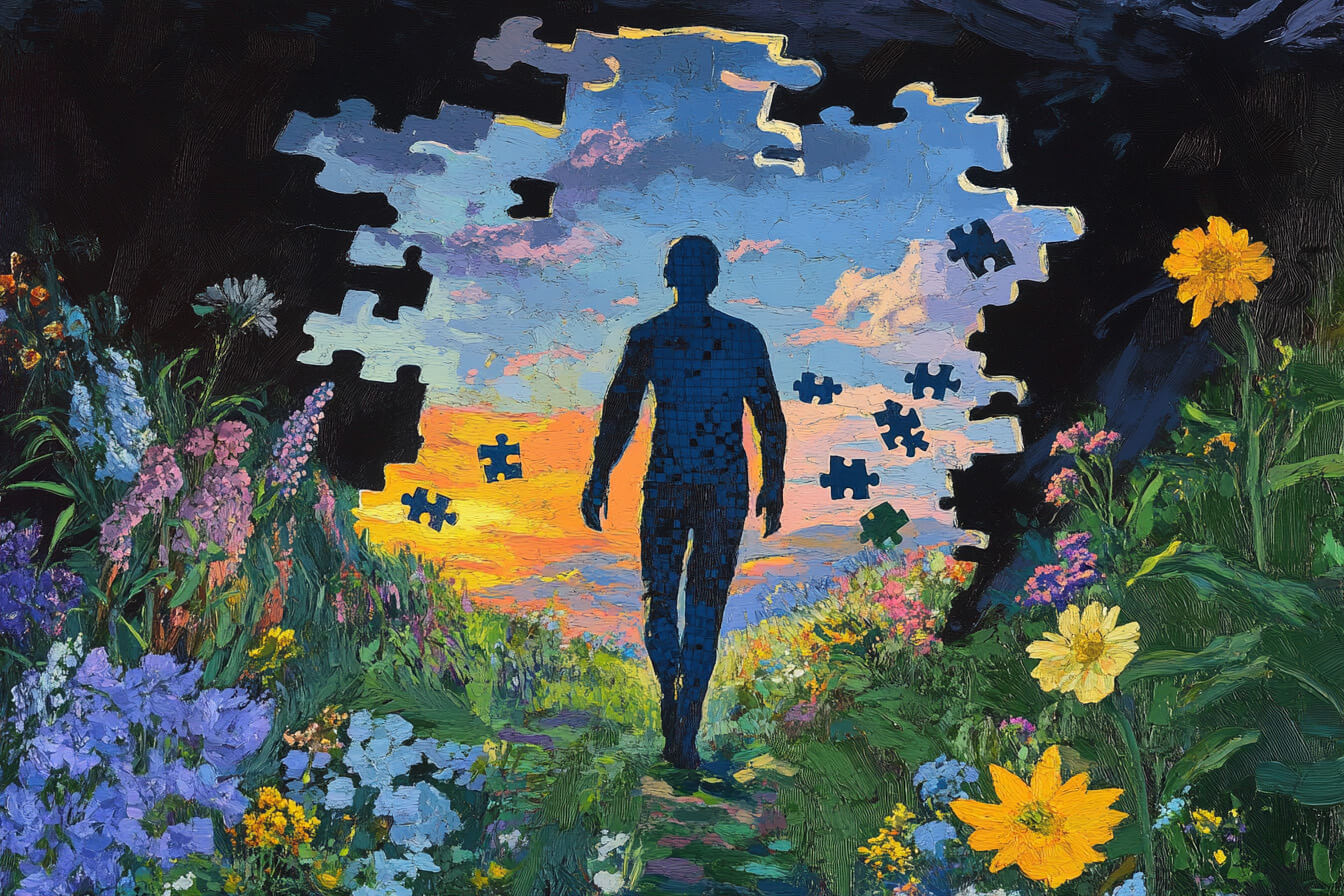
RJ’s Story: Path to Recovery – ADHD/Autism Diagnosis
Turning Point
RJ was referred to my clinic by his mother over two years ago. At the time, he was struggling with anxiety, depression, and binge drinking. His mental health challenges had been a constant struggle since his early 20s.
According to his mother, RJ was barely functioning in daily life. He had experienced serious suicidal thoughts and plans just weeks before his referral. Frequent panic attacks plagued him, and he turned to alcohol as a coping mechanism during stressful periods. His severe mood swings were taking a toll on his personal relationships and professional life.
When I first met RJ, he attended the appointment with his mother. It became evident that he exhibited traits of ADHD—something he had never considered before. Over the course of our sessions, RJ began to better understand the root causes of his struggles. Though his symptoms weren’t typical of ADHD, he revealed difficulties with initiating and maintaining social interactions. He relied on alcohol to navigate social situations and escape his anxious, overactive mind. These observations eventually led to an autism assessment, which proved equally illuminating.
Over the past two years, RJ has fully engaged with a tailored treatment plan that combined personalized pharmacological and psychological therapies. This holistic approach empowered him to understand himself without fear of stigma. He embraced his strengths, tackled the root causes of his struggles, and made remarkable progress. Over time, RJ developed the tools to manage life’s challenges with resilience and adaptability.
Today, RJ has generously agreed to share his story, hoping it might inspire others who feel stuck after trying countless treatments and antidepressants without success. Below is his account in his own words—an honest and uplifting journey to finding a sustainable, fulfilling life. As a mental health professional, I am honored to have been a part of RJ’s transformation. I hope his story, along with others shared here, will guide those searching for the right kind of help toward their own turning points.
RJ’s Story: Path to Recovery—ADHD/Autism Diagnosis
I knew I was different from a young age. I struggled to maintain relationships and regulate my emotions, though academically, I always excelled. In school, I would consistently achieve above-average grades, but I studied differently than my peers. While most prepared for exams weeks or months in advance, I would begin my revision just days before the test. The pressure of a last-minute sprint seemed to fuel me—a pattern my teachers found puzzling. My predicted grades were always far below my actual results, but every report card described me as easily distractible, a daydreamer, and someone who disrupted others.
Anxiety was a constant companion throughout my childhood and teenage years. I felt different from my peers and worried incessantly about saying or doing something that might alienate others. Then, at 14, I discovered alcohol—and later cannabis. These substances stripped away my anxiety and revealed a side of me that made socializing easier. But that relief came at a cost: I quickly became dependent on alcohol and weed to function in any social situation outside of school.
At 19, I enrolled at Roehampton University to train as a primary school teacher. My bad habits followed me, though I had stopped using cannabis. Drinking, however, became a daily ritual to navigate social interactions. Despite my struggles, I seemed fine on the outside. I had friends, a girlfriend, and a vibrant social life. But inside, I was unraveling.
I once mentioned my drinking to my GP during an unrelated visit, admitting I consumed about five pints daily. Her advice was simple: “Stop.” There was no follow-up, no referral—just the instruction to quit. I masked my struggles well, and with mental health stigma still prevalent, I downplayed the depth of my anxiety and depression. At the time, I saw admitting to mental health challenges or taking antidepressants as signs of weakness.
I switched courses after realizing that teaching primary school children while hungover was unsustainable. I transitioned to business management and somehow graduated with a first-class degree. I still don’t know how I managed it, except for pulling all-nighters with copious amounts of coffee just before deadlines. My academic success masked the growing issues with alcohol, which by then were evident to my family, friends, and girlfriend. They dismissed it as a phase I’d outgrow after university.
Post-graduation, everything spiraled. Without the structured environment of university, my anxiety peaked, and my drinking intensified. I started my first office job and experienced my first panic attack. My facade of confidence crumbled. Suicidal thoughts crept in, and I finally sought help from my GP. After trying several antidepressants to no avail, I was left feeling hopeless. I began to believe something was fundamentally wrong with me—perhaps a brain tumor causing my impulsivity, racing thoughts, and inability to maintain relationships.
Eventually, I entered rehab, not because I had hit rock bottom but because I could no longer bear the chaos. Rehab offered a respite from the overwhelming world. I stayed sober for two weeks after leaving but quickly relapsed. The world sober was too much to handle.
My daughter’s birth marked a turning point. Though my drinking improved slightly, I still wasn’t the father I wanted to be. My girlfriend left me, and I knew I had to change or risk losing my daughter. After exhausting all options with my GP, I sought help from a private psychiatrist, Dr. Rostamipour, in October 2022. Initially, we discussed anxiety and depression, but after observing my behavior and speaking with my mother, Dr. Rostamipour conducted an ADHD assessment. For the first time, I had a diagnosis.
Learning I had ADHD was a revelation. It explained so much about my life and gave me hope. With the right medication and coping strategies, I began to rebuild. It wasn’t easy—I went through a period of denial, feeling ashamed of the label. But with the support of dialectical behavioral therapy (DBT), I learned to accept and embrace my neurodivergence.
A year later, I was also diagnosed with autism, which further clarified why I perceived the world differently. Today, I am the most content I’ve ever been. My mental health isn’t perfect, but I no longer experience panic attacks, and my outlook on life is optimistic. My relationships, both personal and professional, have improved, and I’ve developed resilience in the face of stress.
Receiving my diagnoses was scary, but it was also liberating. Understanding myself—the strengths and challenges of ADHD and autism—has made my life infinitely more fulfilling. For anyone considering seeking help, know that it’s worth it. It’s the first step toward truly knowing and embracing who you are.



